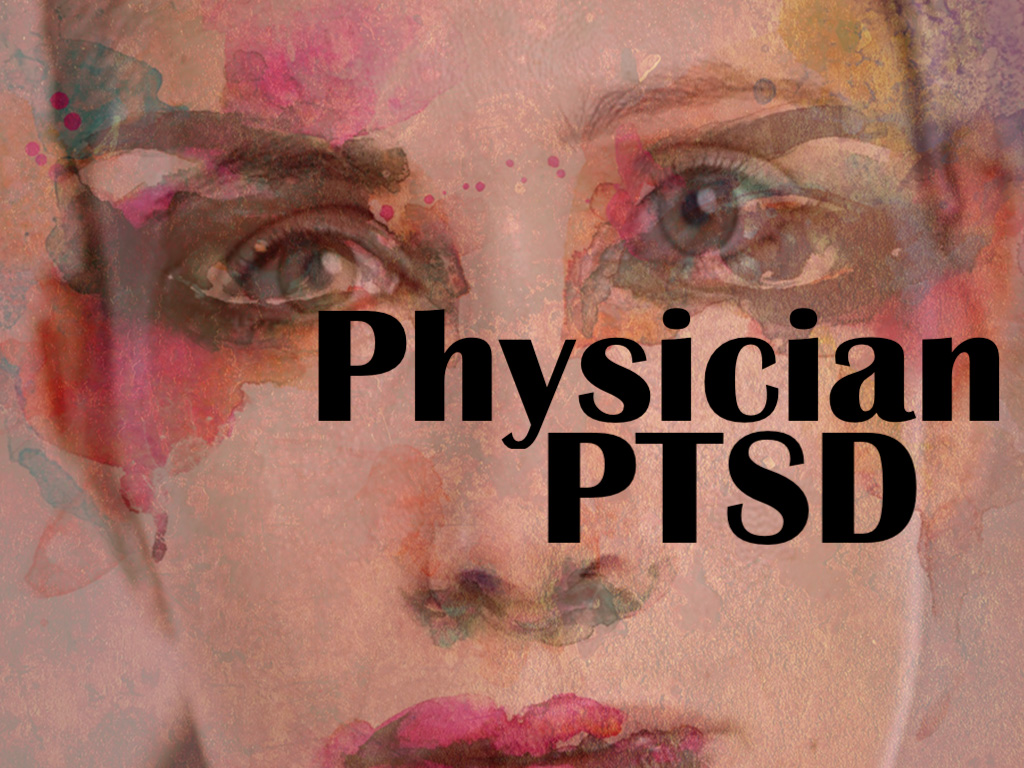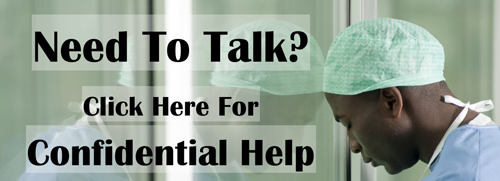
Many doctors suffer silently with physician PTSD—occupationally-induced or exacerbated by work.
As doctors, we often minimize our trauma exposure by labeling it with less-stigmatized conditions like OCD, stress, or burnout.
While doctors who are compulsively obsessive and attentive to details are celebrated for being comprehensive and thorough, doctors with PTSD may be considered impaired by hospitals or licensing boards.
Physicians often hide their PTSD—even from themselves.
As doctors we are supposed to fix problems—so it’s challenging to admit a problem we can’t seem to fix. Plus employers and medical boards may punish us for a diagnosis of physician PTSD.
I’m Dr. Pamela Wible and I’ve been running a free doctor suicide helpline since 2012. I’ve also compiled a registry of doctor suicides (1,710 suicides as of 9/2022).
Anesthesiology, surgery, and emergency medicine are the highest-risk specialties for suicide—and PTSD. No surprise that medical professionals develop PTSD given their high exposure to trauma in training and practice.
Vicarious trauma is the emotional impact of exposure to traumatized people. As physicians, we hear trauma histories and witness the pain, fear, and terror our patients have endured.
Most medical trainees and physicians are accustomed to extreme overwork with traumatized patients. When doctors work 60 – 100 hours per week, they compartmentalize trauma so they can keep moving in chronic fight or flight—until they freeze and can’t function any longer.
And it’s not just doctors. Nurse practitioner PTSD and physician assistant PTSD is real—especially for those in emergency departments and operating rooms.
Nurse practitioners and physician assistants have less autonomy and liability (and certainly less toxic and lengthy training) when compared to doctors, yet they have similar trauma exposure in high-risk specialties, leading to PTSD. So to all my NP, PA, EMT peers out there—this is for you too.
Physician PTSD—5 tips to disrupt the cycle
1) Share your secret with someone.
Find someone you trust—a pastor, friend, or therapist. Tell them you think you may be suffering from PTSD. Ask that they keep your conversation confidential. Here’s how to get confidential mental health help for physicians. If you have nobody to tell, you can always contact me.
2) Slow down your breathing.
When traumatized, you may dissociate from your body. As overworked physicians immersed in trauma scenes, we have dysregulated sleep, eating, and bathroom habits. Chronically disconnected from our bodies, we may feel disoriented. Take a break. Go to the bathroom or to a safe space. Notice your shallow breaths. See if you can slow down your respiratory rate while deepening each breath. Count for 3 seconds for each inhale and another 3 on exhale. How slow can you go?
3) Get grounded in your body.
While taking deep breaths, imagine yourself connecting to Mother Earth. Go outside and feel the ground. Find a rock. Hold it in your hand. Learn to meditate. Inhale a relaxing aromatherapy oil like lavender. You can carry a tiny bottle with you to work and use as needed. Recite a short prayer or chant. Google “PTSD grounding techniques” and discover what’s right for you. Experiment.
4) Keep a curiosity journal.
Befriend your trauma by getting curious. Study yourself like a scientist. Write down each time you feel traumatized. Keep a list of inciting events, sounds, words, people. Notice subtle body sensations when you feel triggered. Like helping a patient notice sensations of a migraine prodrome—visual auras, food cravings, neck stiffness, pins and needles on their face or body. What do you feel? What do you think? Keep a list of intrusive thoughts. When you stop running away and start getting curious, your fear will subside. Writing your feelings releases them from your body like draining an emotional abscess. Search for your hidden loculated pockets and open them to avoid ending up in emotional sepsis.
5) Get help decoding your PTSD patterns.
Sometimes we are too embedded in our own patterns to see them objectively. Bring your journal to a professional who can give you feedback and notice themes you may not be able to discern. William Osler said, “A physician who treats himself has a fool for a patient.” So find a wise “puzzle-solver” who can help you see your hidden or shadow self. I’m happy to help or direct you to others with expertise in specific issues underlying your PTSD. If you’d like to join a confidential physicians trauma recovery group, we meet every Sunday on Zoom.
* * *
Wondering if you might have developed residency-induced PTSD? Meet a courageous physician who shares her PTSD story. View full interview here.















Pamela,
You continue to AMAZE and INSPIRE me with your selfless dedication to my peers. I am currently sharing your advice with a dear friend of mine who is suffering from PTSD from her high risk field, and honestly, an amniotic fluid embolism case that she had zero control over. You are a blessing! Thank you!
Oh definitely have her talk to me. She should not have to deal with that trauma in isolation.
Play tennis, any social sport, and engage in regular communal prayers or worship gatherings. Communal games and worship have been key stress-relievers for centuries if not millenia. A racket sport, one friend said, is a healthy psychiatrist. Tennis did not keep a troubled medical friend of Dr Abraham Verghese from suicide, but it may have enabled the MD help others for many more years before the end. For retiring MDs, we must fight fully to preserve the doctor-patient relationship, restore patient choice and freedom, and restore practicing PHYSICIAN voice and leadership into a deteriorating, unnecessarily costly and burdensome health care system before giving up our lives or the sinking ship. Bless you, Dr Pamela Wible, MD, for all the work you do helping us through these troubled times.
It is really helpful to have such knowledge with information that is relating to healthcare. Letting yourself feed with such information will really help you with the current issues relating to health and you can also use it for future reference. Thank you for sharing this information!
Great article Pamela! Not many think about physicians suffering PTSD. Read a recent report that said 17% of emergency physicians and 18% of all nurses meet the diagnostic criteria for PTSD. So, it’s a much more serious issue than one would imagine.
HUGE issue and totally unrecognized by most.
Beautiful brilliant email by Pam – I so enjoyed every word – especially ‘embezzlers’. It struck home, and I had to read it twice and then out loud to my friend. It was a light in my very dark life filled with suicide in my family, friends, and patients. I survive with the grace of your words Pam.
Thank you for this article. My daughter is an anesthesia resident,bravely taking a break and getting help, as she has become severely depressed in her second year.She was diagnosed with PTSD, and it came as a shock to her. She is now working with a psychiatrist,a therapist,and has finally confided both to us, her parents(btw way her dad is an anesthesiologist also) and her mentor.
I am thankful she has help,and hopefully will be able to make the right decision about whether she will have the coping skills now to return within a few months…..your articles are so very helpful for me.
We are starting support groups for anesthesia residents and anesthesiologists if this is something you may be interested in . . . 🙏💕
We also have a support group every Sunday full of many residents who are struggling and we help one another. I think your daughter would find this very healing. Physician Trauma Recovery (2 pm EST) ~ Heal from doctor suicides & suicidal thoughts, childhood or residency abuse & more. (2 hr). She can join here if she like.
I am so glad you are looking at this issue. I have just retired from a 30+ years in medicine. I started in Surgery and switched to Anesthesia. I am a female. I have practiced in all areas of Anesthesia with Trauma being one of my specialties. I experienced so much dehumanization, callousness, and heartache both in my training and in my patients, it was hard to realize that this wasn’t everything in the world. You could still love your practice, but it did take a toll. I would love to be part of a program for those starting out so they might have tools when these issues come up.
I’ll email you now. I have some ideas.